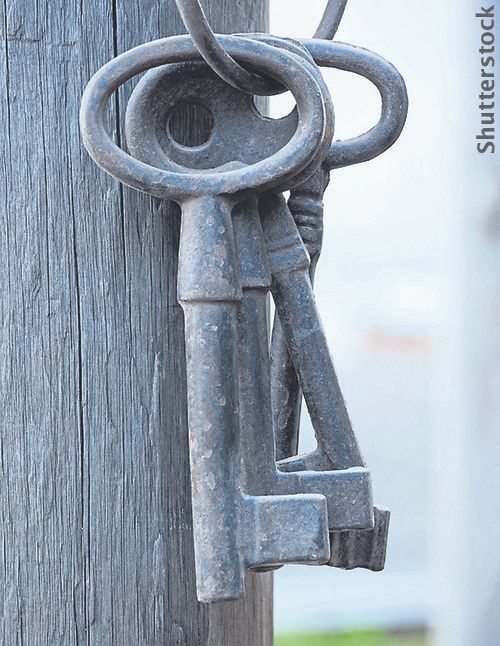
The Lord Jesus Christ was crucified between two thieves. The religious leaders of the day probably got no small delight from this. To them it was the ultimate insult to the one they despised so much. The self-proclaimed Messiah dying with common criminals! What more proof could there be that he was an impostor? But what they regarded as proof of their position was just the opposite. The prophet Isaiah had predicted that the Messiah would be ‘numbered with the transgressors’ in his death (Isaiah 53:12).
The first time Jesus opened his mouth to speak on the cross, he prayed. The second time he spoke was to answer the prayer of one of the thieves. After initially joining in the mockery and ridicule that others were heaping upon Jesus, this one thief suddenly stopped and offered this prayer: ‘Lord, remember me when you come into your kingdom.’ The Lord answered that prayer by assuring the thief that the two of them would be together in paradise that very day.
The words Jesus spoke to this thief have consoled and comforted countless numbers down through the running centuries. The dying words of Jesus have proven to be undying.
Consider the man
Let us consider the man to whom these words were spoken. It should be apparent he was a very wicked man.
Wicked? Yes, by his own admission (v. 41). He was a malefactor, a criminal, a thief and, according to some, a murderer. The Lord Jesus Christ was dying the death of a criminal, but he was innocent. This man was dying the death of a criminal because he was a criminal.
The fact that Jesus spoke so kindly and generously to such a man ought to fill our hearts with joy. No matter how great our wickedness, we can come to Christ and find mercy and grace.
Let us also remember that these words were spoken to a dying man. His wasted life is quickly drawing to a close. His life’s blood is seeping out of his tortured body and falling to the ground beneath. Hell’s mouth is yawning open to receive his soul. He was wicked, he was dying, but what does it have to do with us?

Consider yourself
Quite a lot. Believe it or not, this is an accurate description of all of us. We are all wicked and we are all dying.
Do you object to this? Many do. They protest in words like these: ‘Hold on just a minute there. I’m not perfect, but I’m certainly not like this thief. I have never stolen anything. I am a respectable, law-abiding citizen.’
You may very well be in your own eyes, even in the eyes of all those around you. But what about God’s eyes? Those probing eyes see every crevice, every nook and cranny of your heart. They never close in sleep, and they are never diverted by distractions.
Those eyes can see stealing when no one else can. God demands that we love him with all our heart, mind, soul and strength. Have we given this to God, or have we taken it from him and given it to another? Alas, we are all thieves, after all.
And this one who can see stealing when we cannot also sees every other form of sin in our hearts and lives. This great, all-seeing One says of us: ‘There is none righteous, no, not one’ (Romans 3:10). The wickedness of man is written so large and so clearly in our society and in our own lives that one can only be amazed that any would dispute it.

One thing that is beyond dispute is we are dying. The grim reaper steadily swings his scythe. Rich and poor. Educated and illiterate. Powerful and weak. Black and white. It does not matter. All die.
Why is it so important for us to take our place alongside this thief as wicked, dying people? It is only as we occupy his place that we are in a position to receive his blessing. What was his blessing? Hearing the words of Jesus: ‘Today you will be with one in paradise.’ Those words were spoken to a wicked, dying man, and we may take them for ourselves if we will admit that we are wicked, dying people.
Consider the words of Jesus
That brings us to consider what these words tell us.
There is a great deal here. First, they tell us there is a glorious state, a glorious condition beyond this life. Jesus here calls it paradise. What was he referring to? Only two other times do we find this word used in Scripture (2 Corinthians 12:4; Revelation 2:7), and in each case it is used as a synonym for heaven.
Jesus was, therefore, promising life in heaven to this thief, and this promise was going to be fulfilled that very day. The moment the thief died his soul went immediately into the presence of God. His body was, of course, taken down from the cross, and, we presume, buried. When the Lord Jesus Christ comes again, that body will be raised from the grave and will be reunited with his soul, but his soul joined God in heaven on the day he died, it remains in heaven today, and it will remain there until the day of the resurrection.
Heaven! What a glorious thought! And we may rest assured that our greatest flights of imagination fall far short of the reality. No tears. No sorrow. No pain. No death. No parting. Is it not amazing that so few are interested in this place and how to get there?

Lord of heaven and earth
The second thing the words of Jesus tell us is that he is the one who has the keys to heaven.
The thief called him ‘Lord’. Here Jesus was dying on a cross and this man called him’ Lord’. He didn’t look like God in human flesh at that point, but the Spirit of God had so worked faith in his heart that he was able to look beyond outward appearances to see the reality of who Jesus was. So it is today. When the Spirit of God works faith in a person’s heart he enables that person to see what others cannot see.
Notice that Jesus did not dispute what the man had said or correct him. When this man said ‘Lord’, Jesus simply responded in lordly fashion by saying: ‘I say unto thee…’ In other words, he accepted the title the thief used for him.
Here’s the point. If Jesus is Lord, and he is, he has supreme authority over all, including entrance to paradise.
My Lord, too
The third thing the words of Jesus tell us is what we must do if we want the Lord to open heaven’s door to us.
Let’s not forget that Jesus spoke these words in response to what this thief prayed. And what did the thief’s prayer include? It contained, in the words of one commentator, ‘a very large and long creed’:
In effect, the thief said the following in his prayer: ‘I am a sinful man. I deserve the punishment placed upon me. This man, on the other hand, is pure and righteous. I will, therefore, trust him, and him alone, for my salvation.’
Would you have heaven’s door swing open to you? Would you enter paradise? You must make the prayer of this thief yours. You must stop arguing with God and start agreeing with him. You must say the same thing about yourself that he says about you, namely, that you are indeed a sinner and deserving only of his eternal wrath. You must further recognize that you can do no more to help yourself than this thief could do. You must see that Jesus Christ is your only hope for salvation and cast yourself entirely on his mercy and grace.

Choosing sides on the great divide
The final thing the words of the Lord tell us is very sombre indeed – all will not make it to heaven.
Jesus spoke these words to one thief and one thief alone. The other thief refused to cast himself upon the mercy of the Lord. His prayer was: ‘Save yourself and us.’ He was concerned only with what Jesus could do for him in this life. He could not see to the life beyond. How many today are like him! Their only interest is in a god who helps them with this short span. Speak to them about the God who will help them for eternity, and they turn quickly away.
It was not an accident that Jesus’ cross was placed between two thieves. He is the great divider of men. Those who receive him are saved; those who reject him are lost for ever. Those two thieves, one on Jesus’ right and the other on his left, are not only fitting symbols for all human this very day, but they are also fitting symbols for that future day of judgement when his sheep will be placed on his right and the goats will be placed on his left and driven away for ever.
Where do you stand in relationship to Christ right now? If you are on the wrong side of Christ now, you must act quickly and decisively. Flee to Christ as the penitent thief did. Those who go through life on the wrong side of Christ will certainly find themselves on the wrong side of him in eternity.
One more thing. Perhaps you recognize you are on the wrong side of Christ and you intend to do something about it but not today. Perhaps you think that you can turn to Christ at the last minute as the penitent thief did. This is a grave mistake. Death may so quickly snatch you away that you have no opportunity to repent. The course of wisdom is to repent today. There is great truth in the point that has been so frequently made: one thief was saved, so no one need to despair; but only one, so no one should dare to presume.









